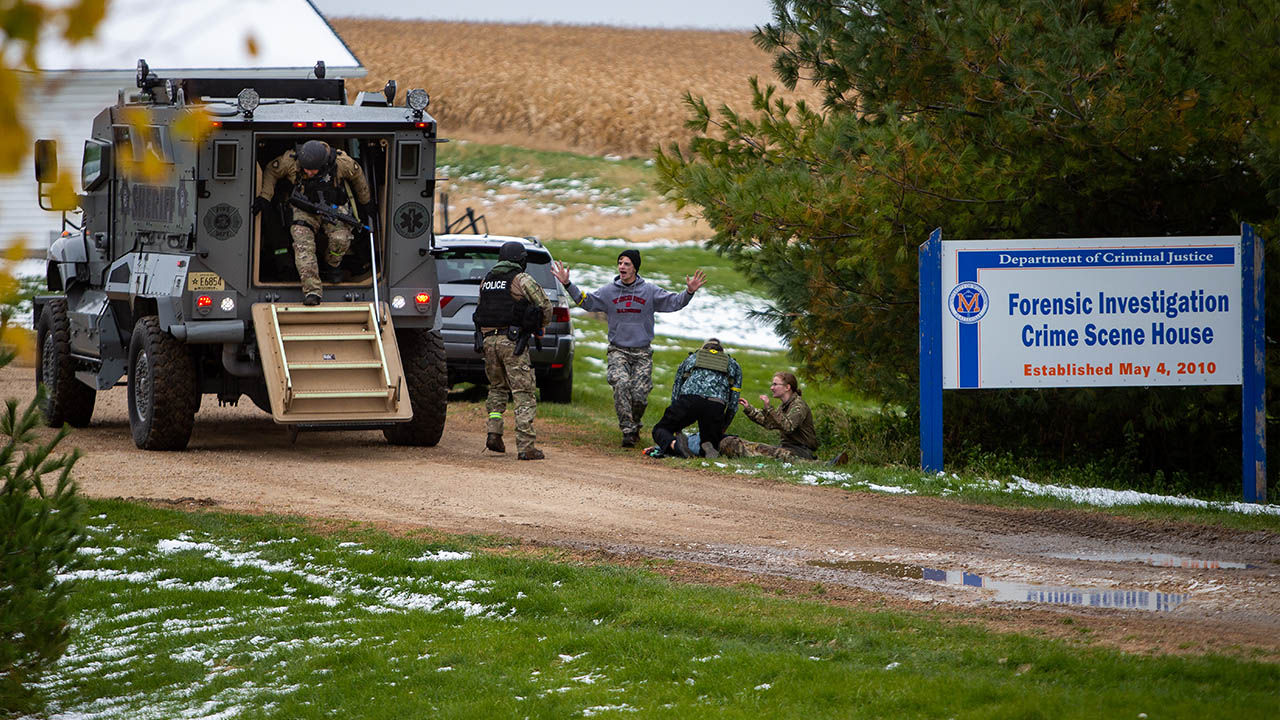
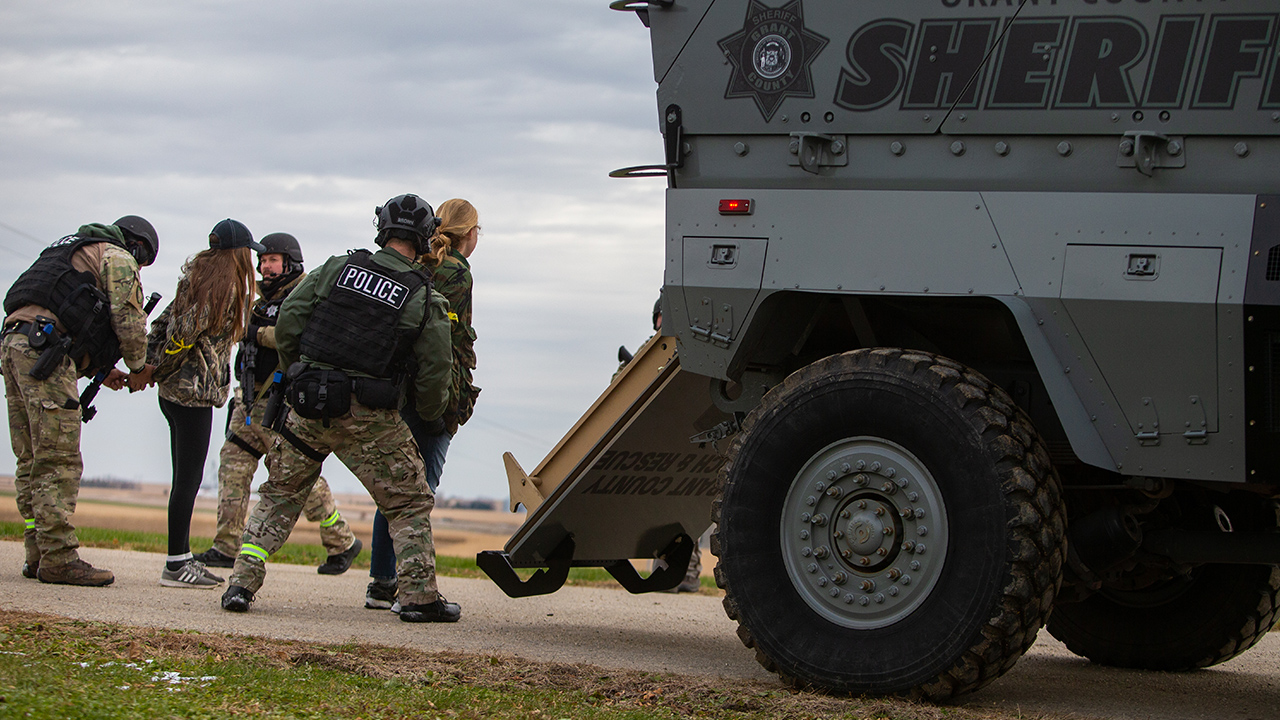
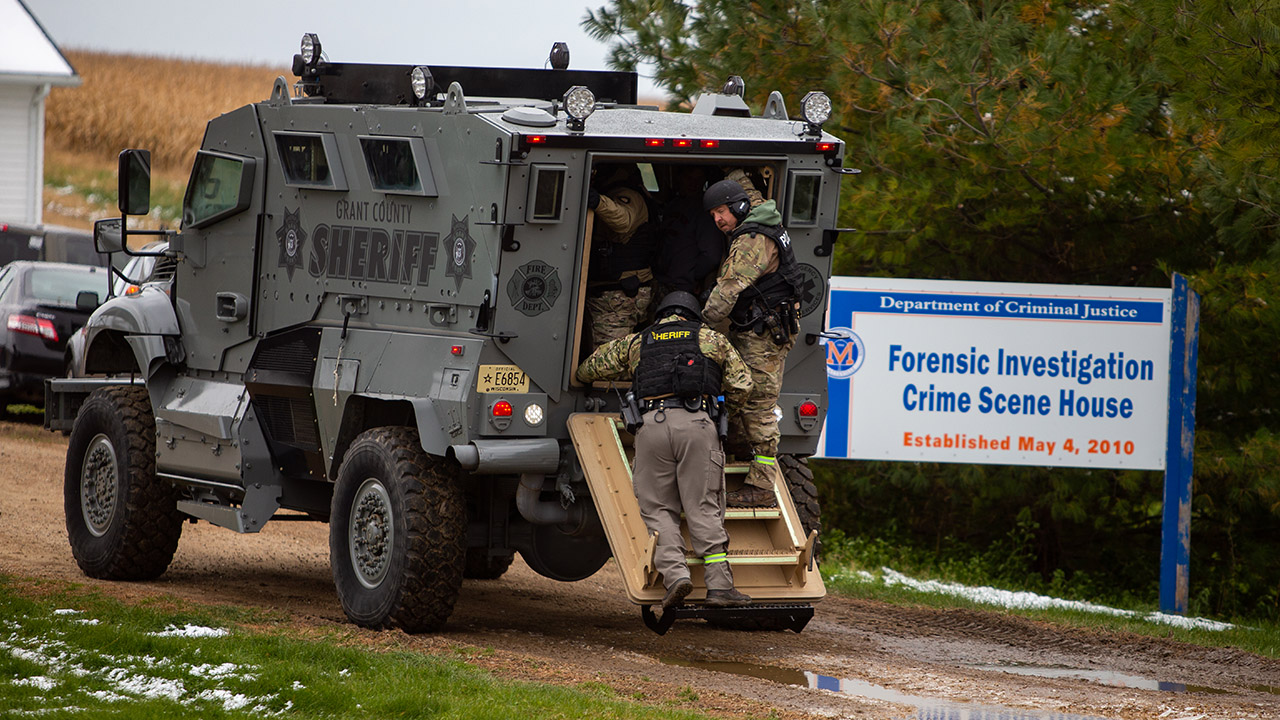
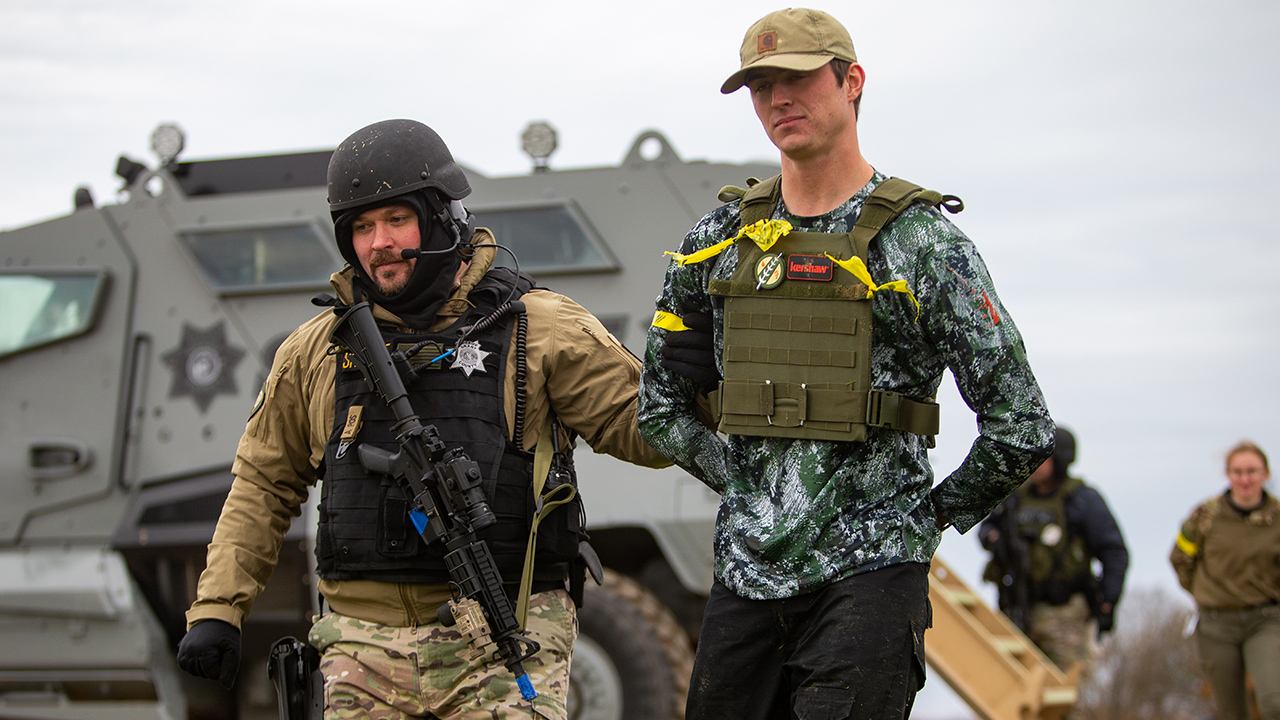
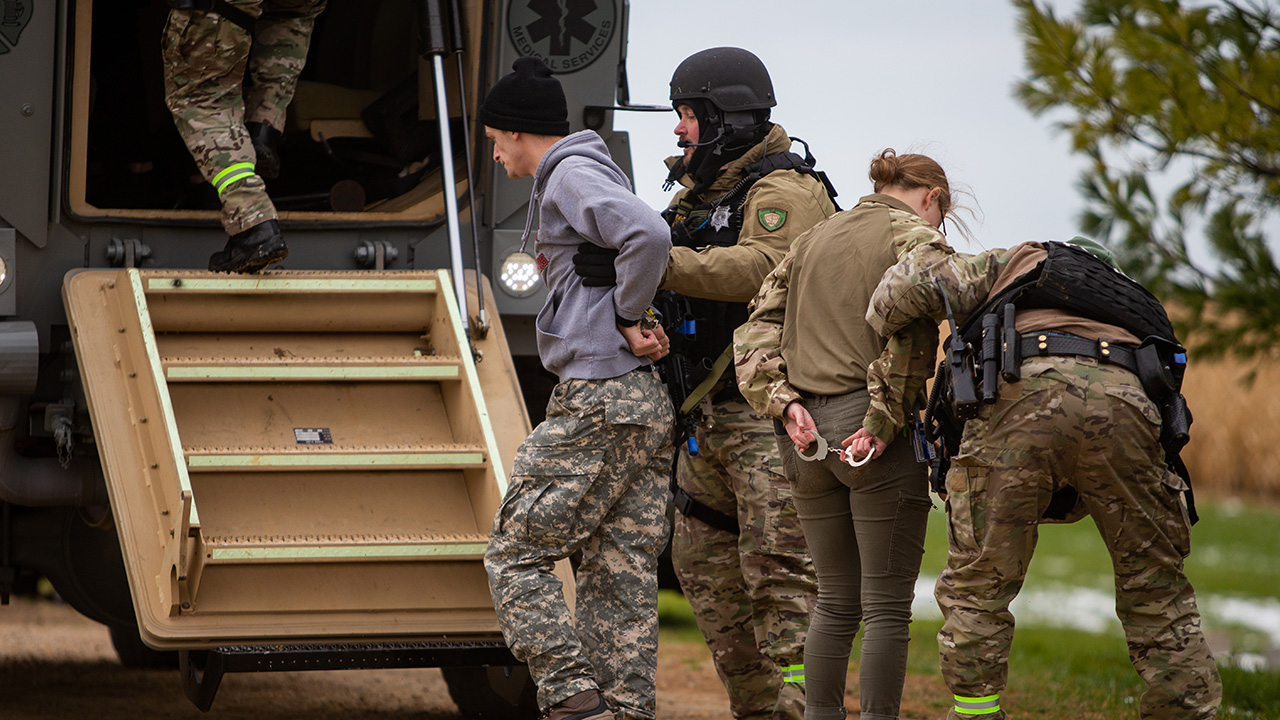
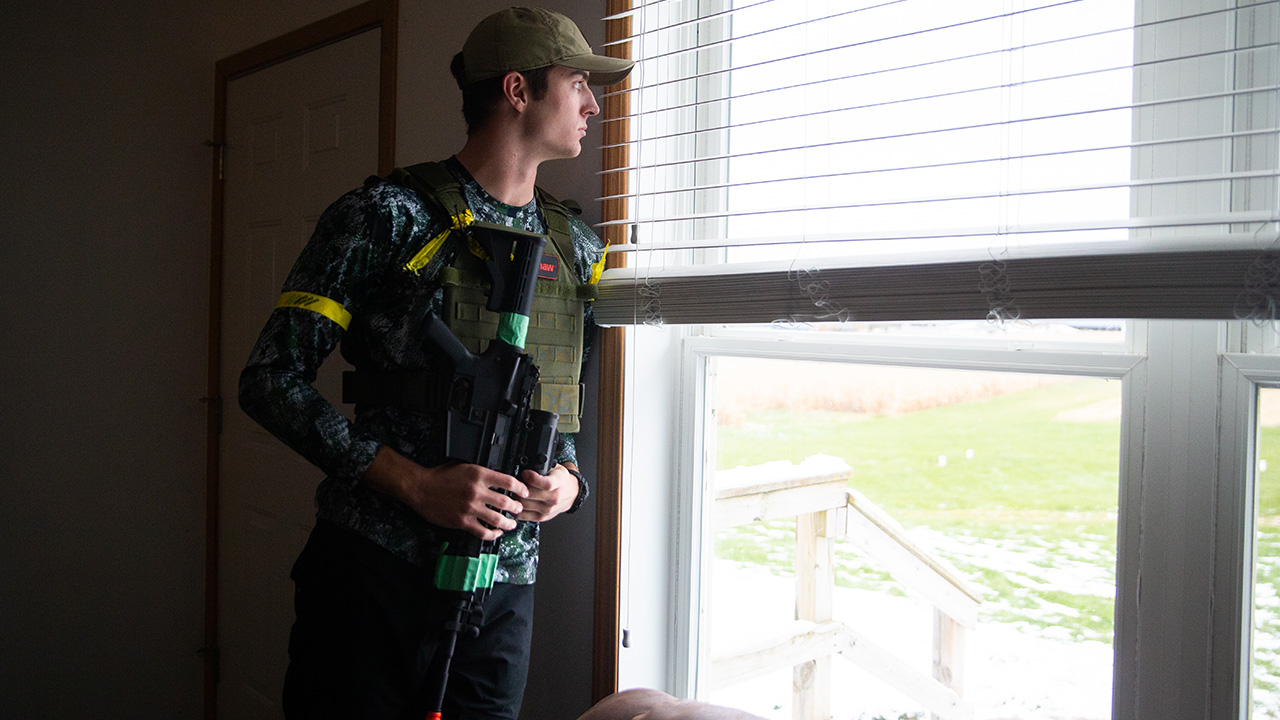
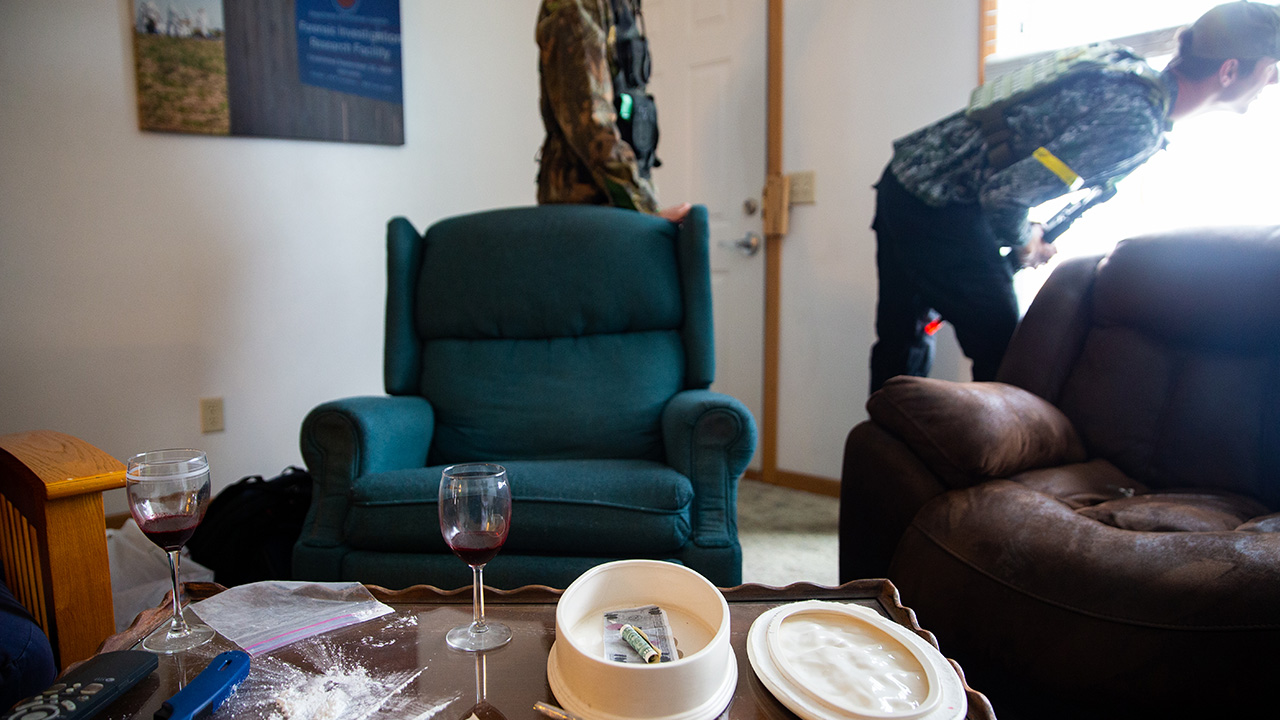
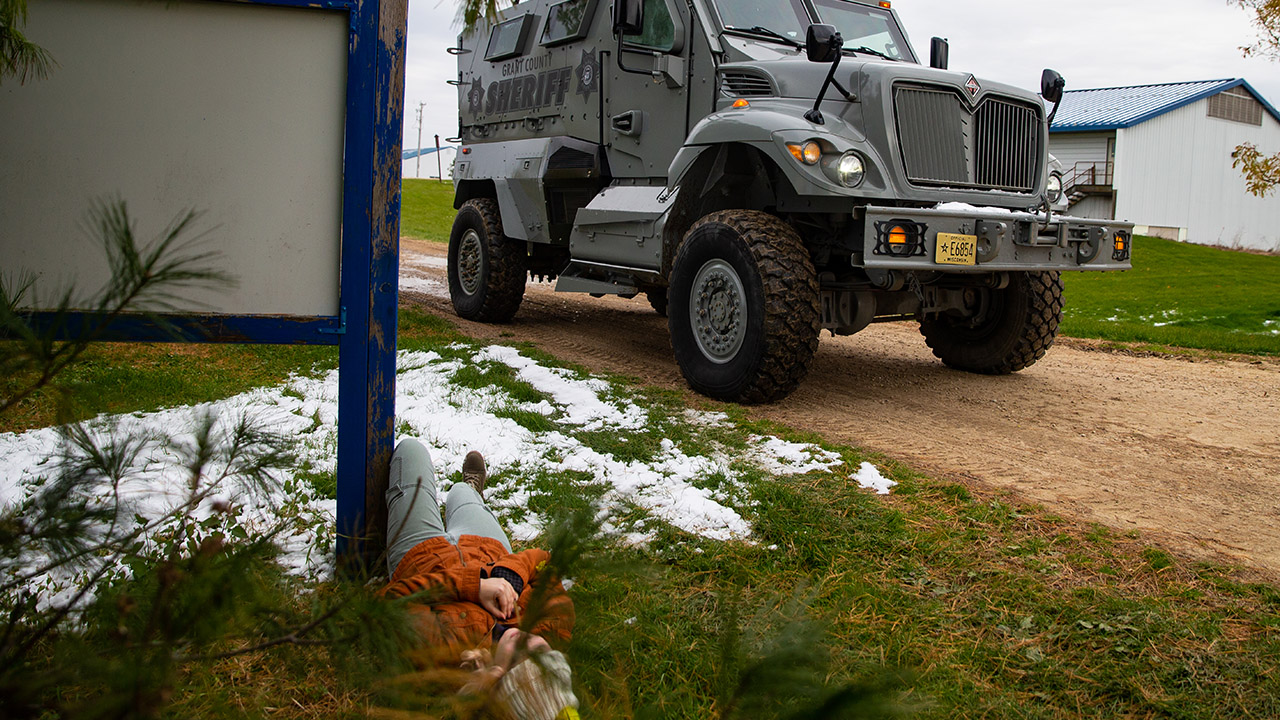
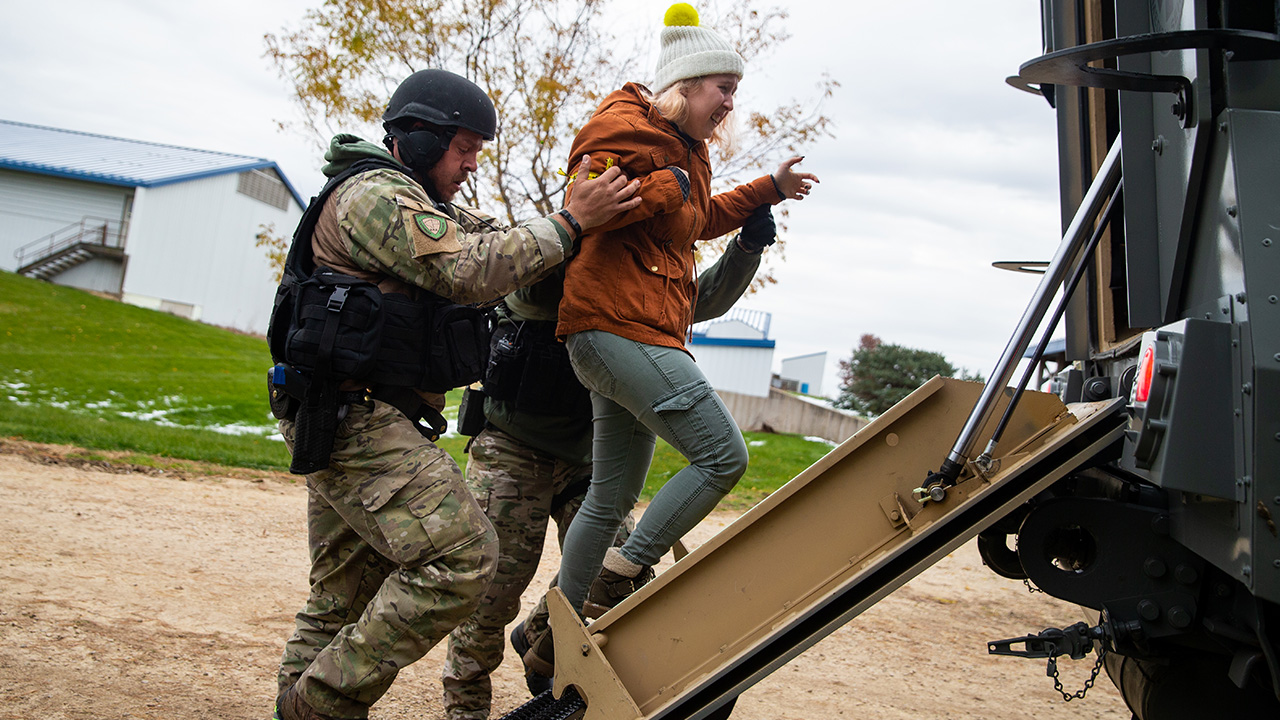
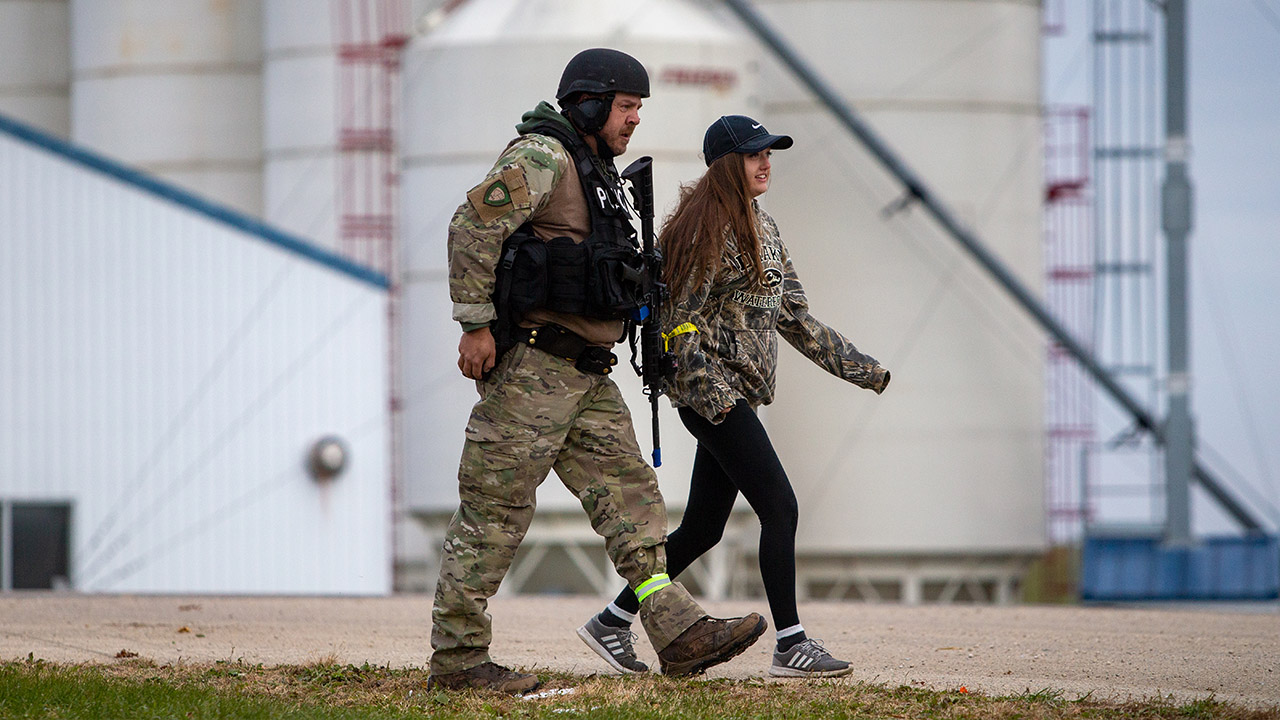
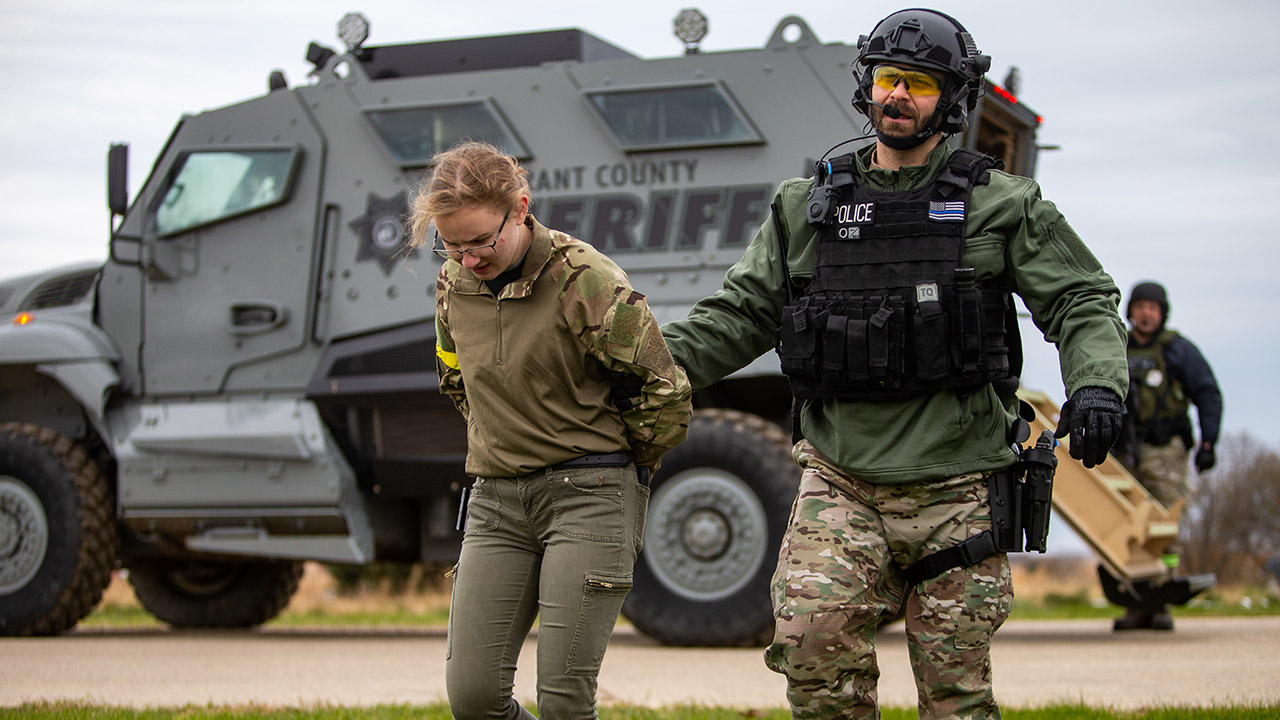
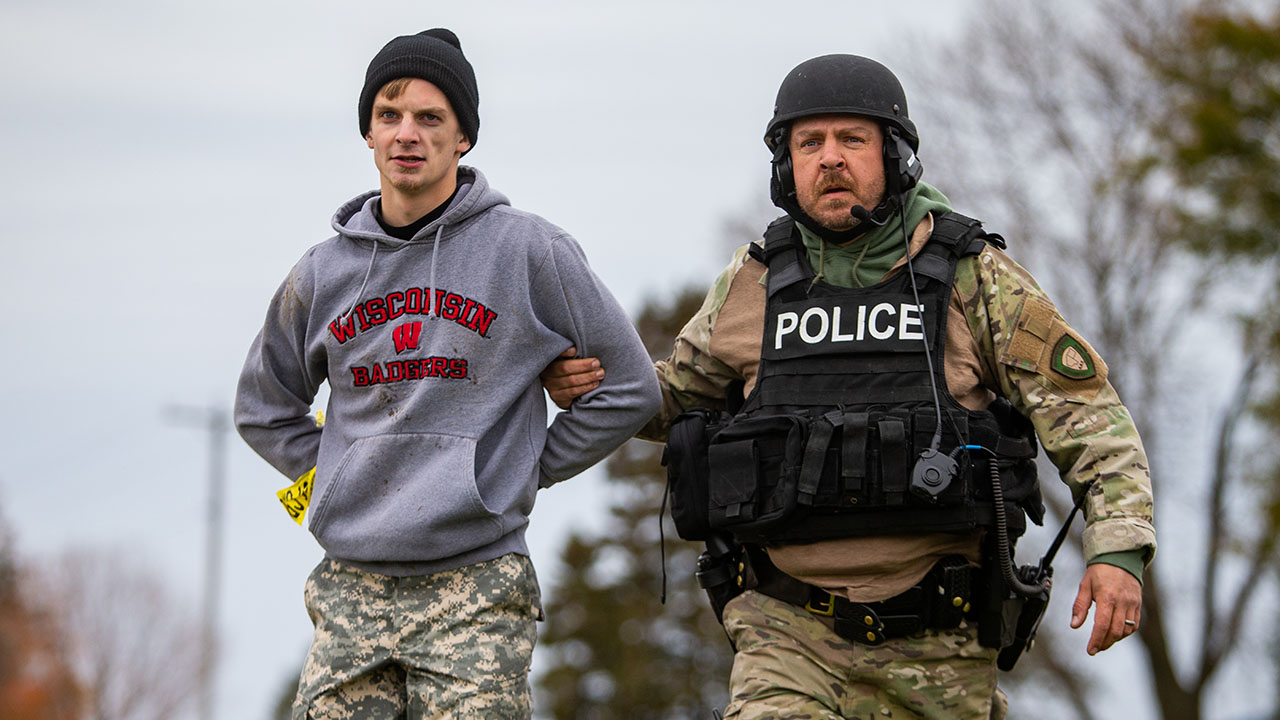
Nineteen University of Wisconsin-Platteville criminal justice students recently gained critical skills in tactical response and hostage negotiations during a “barricaded subjects, armed and with hostages” scenario drill conducted by the Grant/Iowa County Crisis Resolution Team, the county’s special weapons and tactics law enforcement unit.
The exercise, held at the university’s Forensic Investigation Crime Scene House, involved mock hostage-taking and hostage negotiations between role players and members of the Grant/Iowa County Crisis Resolution Team.
Student participants were members of Defense Intelligence and Counter-Terrorism, or DICT, a UW-Platteville student organization designed to educate students about federal defense, federal policing agencies, intelligence and world-wide topics regarding national security.
The first contacts between negotiators and role players were conducted in Spanish. The two-hour negotiations included the team evacuating a heart patient who left the house, several runners, press people, a diabetic emergency and choosing (correctly) not to make entry in favor of (simulated) calling Dane County Bomb Squad when they found a possible improvised explosive device on one of the surrendering role players. The plan had been for them to do this after they entered the house and discovered a trip wire, but one of the role players decided to improvise and slipped a simulated grenade into her pocket before she surrendered.
“This type of experience is invaluable for our students,” said Dr. Travis Nelson, chair of the Departments of Criminal Justice and Social Sciences at UW-Platteville. “Not only is it a great example of practical, hands-on learning, but it helps connect students to members of their future professional community.”
The drill was planned and organized by Kevan Norin, lecturer of criminal justice at UW-Platteville. Grant Patient, lecturer of criminal justice and advisor of the DICT organization at UW-Platteville, and Reggie Ihm, a police officer at UW-Platteville, acted as observers and safety people throughout the drill. Kurt Tuescher, a police officer at UW-Platteville and member of the Grant/Iowa County Crisis Response Team, participated as a member of the tactical team.
“The drill helped members of UW-Platteville’s DICT group develop skills that they will use in their future careers as members of the criminal justice system,” said Norin. “It also helped the Grant/Iowa County Crisis Resolution Team develop skills for safely resolving a high-risk incident, provided a community service to Southwest Wisconsin by helping our law enforcement officers practice to do their jobs better and helped maintain good relations and coordination between the university’s Department of Criminal Justice and area law enforcement.”
“The drill helped me gain valuable experience and knowledge on tactical team and crisis negotiation efforts in certain situations,” said Kerri Hauenstein, a senior criminal justice major and president of the DICT organization. “The experience was beneficial because we had the opportunity to act in different roles, which is hands-on experience we would not usually get in the classroom.”
“The scenario training was a really unique experience because my classmates and I were able to see a tactical team operation firsthand,” said Kaitlyn Schaefer, a senior criminal justice major at UW-Platteville. “We saw how they approached a situation, communicated, used teamwork and adapted as unexpected twists happened. Everyone knew their role and contributed to resolving the situation in the most effective and efficient method possible.”
Schaefer said the training benefits criminal justice and forensic investigation students because they can apply their knowledge from inside the classroom and learn what it takes in real life situations. Her biggest take away from the event was the officers’ and deputies’ ability to communicate and calmly work through a call for service. “They were efficient and cared for both the safety of themselves and the safety of the suspects and witnesses,” she said.
Patient said the DICT student organization was proud to play a role and volunteer in the law enforcement tactical drill. “The students gained a valuable educational experience being a part of the drill by observing how law enforcement operates in emergency situations,” he said. “Additionally, this experience gave students fond memories of their participation in the drill and allowed them to interact with our local law enforcement community.”
UW-Platteville’s Forensic Investigation Crime Scene House, located at 29065 College Farm Road in Platteville, is a special training facility that provides hands-on opportunities for UW-Platteville students to gain knowledge of the procedures followed in crime scenes using important principles such as photography, latent fingerprint development techniques, footwear impressions and evidence documentation, collection and preservation. It is one of only a few such facilities in the Midwest.